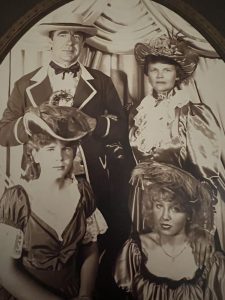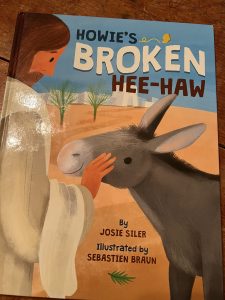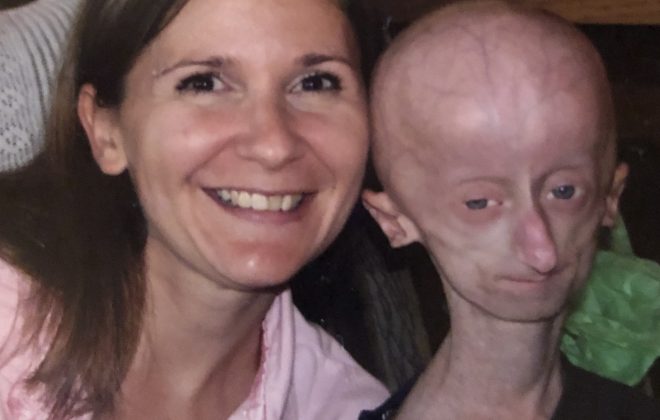Blind? Blonde? Or Both?
Sometimes how one speaks stirs confusion… creates trouble… or worse.
Take Judges 12:1-6 (read for full context), for example–particularly verses five and six.
“The Gileadites captured the fords of the Jordan leading to Ephraim, and whenever a survivor of Ephraim said, ‘Let me cross over,’ the men of Gilead asked him, ‘Are you an Ephraimite?’ If he replied, ‘No,’ they said, ‘All right, say “Shibboleth”.’ If he said, ‘Sibboleth,’ because he could not pronounce the word correctly, they seized him and killed him at the fords of the Jordan. Forty-two thousand Ephraimites were killed at that time.”
Having read this recently, I was left scratching my blonde head. Blind to its deeper truth, I found myself pondering this biblical passage for days, asking God to bring clarity. Why is this even in there?
It’s clear that the Ephraimites didn’t show up to assist when asked. Then, on another occasion, they were offended when they weren’t called to help, and therefore, puffed up with pride, bullied Jephthah, who, in turn, defeated them. Thus, they became fugitives and could no longer freely cross over into the Gileadites’ territory. Still, sometimes they tried.
In order to ensure no invaders from the west crossed the Jordan, the Gileadites devised a plan having to do with how differently these enemies spoke. In this case, the Ephraimites weren’t able to pronounce the consonant digraph /sh/–a dead giveaway (pun intended) when they attempted to cross the Jordan, mispronouncing the Gileadites’ word ‘shibboleth’ (meaning ‘flood’).
As the note in my NIV Quest Study Bible (p. 354) puts it–
“A phonetic limitation of their dialect betrayed them.”
Indeed! And many wound up dead.
So, again, I’d been pondering this passage a bit when, out of the blue, our pastor mentioned something on Sunday that hit home the above point from my Bible study.
Pastor was giving an example to support his sermon, using a scene from a 2004 thriller I’ve not watched called The Village. He explained that the people in the community were isolationists, never venturing out for fear the outside world might wreak havoc on their stringent moral code.
But then, a medical emergency takes place and it becomes necessary to send someone to the neighboring town. This is where, for just a moment, I was offended–felt my skin bristle a bit, because I thought Pastor said, “So they sent a girl who was blonde…”
“Why does her hair color matter?” I heard myself whisper. “Is that some sort of joke?”
And my husband interpreted with a chuckle, “Whoa there, Babe. He said ‘blind,’ not ‘blonde’.”
Oh, so I quickly cooled my jets.
And take the time I asked a new student whom I’d not met, “What’s your name?”
“Dee-Bee.”
Interesting name, I thought. “Well, nice to meet you, Dee-Bee,” I said with a smile.
The girl stared back at me. “It’s ‘DEE-Bee,” she repeated.
It was my turn to gawk. “That’s what I said. Dee. Bee,” I retorted with staccato-ed pronunciation. Then again, just to be sure, “Dee. Bee.”
She shook her head and giggled. “No. De-bbie.”
“Oh, as in the nickname for Debra?”
“Yes. DEE-Bee.”
Anyway, we wound up friends and can still laugh about that initial introduction all those years ago.
And then there’s the time I first met my North Carolina neighbors. Inquiring about their children, I nodded first toward their daughter.
In response, their mother replied, “That there’s Laurel.” Pointing to her son, “And this here’s Dob.”
I waved. “Hello, Laurel. Hey there, Dob.”
The teenage boy snickered. “Not ‘Dob.’ D-ob.”

My confusion was apparent, and perhaps these folks who were still nothing more than strangers thought of a million blonde jokes in that moment, each matching my seemingly ditzy response.
My inner Valley Girl made an appearance. “Like, D-ob?” I was so confused.
“No,” his mother intervened. “D-ibe. As in, rhymes with gibe.”
Now that hurts, I thought, the irony not lost on me. After all, I did feel as though I’d been the butt of a joke.
More than twenty years ago, we’re now the best of friends. Still, this interaction made a lasting impression. On a positive note, I’ve never forgotten her son’s name.
Finally, there’s the time when I was twelve. On a mission trip to Haiti, I was a bit uncomfortable being among many who knew very little or no English. Knowing zero Creole and only un peu French, I found myself sometimes simply nodding with a smile, as if that spoke volumes.

Well, I had a blonde moment (the rules don’t apply when making fun of oneself) while strolling a dusty Haitian road. A little girl approached me, then spoke to me in Creole.
Smiling, though not comprehending–much in need of an interpreter–I nodded. “Oui!” I exclaimed, feeling particularly proud that I knew at least one word.
“Merci,” she then answered and promptly removed the barrette from my hair before skipping off, my blonde locks hanging limp over my flushed face.
And the message, I suppose, in this and the other true tales I’ve told?
Indeed, a phonetic limitation of dialect can betray us.
Makes me grateful to have an Intercessor who knows even my groaning–the One who sits at the right hand of the Father interpreting my prayers, no matter how garbled they might be.
It doesn’t matter what part of the country or even the world one is from. There’s no word or language He can’t decipher, and He’s never out to trick us, nor poke fun at our confusion.
In fact, His Word is clear–
“In the same way, the Spirit helps us… We do not know what we ought to pray for, but the Spirit himself intercedes for us in wordless groans” (Romans 8:26 NIV).
And just as we might one day hear our pastor say–Even when we feel ‘blonde’ and confused, there’s nothin’ to fear. After all, we have a Savior who’ll guide us to truth.
Well, at least that’s what I will perhaps hear. Next time, however, rather than feel offended in the least, I’ll be thankful. Because, unlike the Ephraimites of old, such isn’t a life and death situation–for me or for Pastor.

And, thankfully, I’ve got a loving interpreter named Bill who’ll remind me, “Babe, cool your jets.”
Have you ever misunderstood someone due to a varied dialect or language barrier? Would love to hear your silly stories too!
***For the chance to win a copy of my friend Josie Siler’s sweet picture book Howie’s Broken Hee-Haw just in time for Easter, leave a comment. I’ll draw a name on Monday, April 11th. And to read about a donkey who spoke (Yes, a donkey!), see Numbers 22:21-41.

Dear Jesus, thank you for understanding not only our words but also the motives of our hearts. Help us hear with clarity Your voice and the messages of others, for Your glory and our good. Amen.
Tags In
Related Posts
2 Comments
Comments are closed.
Search
Subscribe to Blog via Email
Categories
- At Home (173)
- God's Word (180)
- His World (198)
- Uncategorized (5)





I enjoyed this! Really made me think about that verse. Here in Norway, I met a tall blonde man who told me his name was “Ti-am” (rhymed with Liam.) When I asked him what part of Norway he was from, he responded, “Mah name is Ti-am, and Ah’m from Alabama!”
That’s so so funny!!! Thank you for sharing! Miss you! ❤️